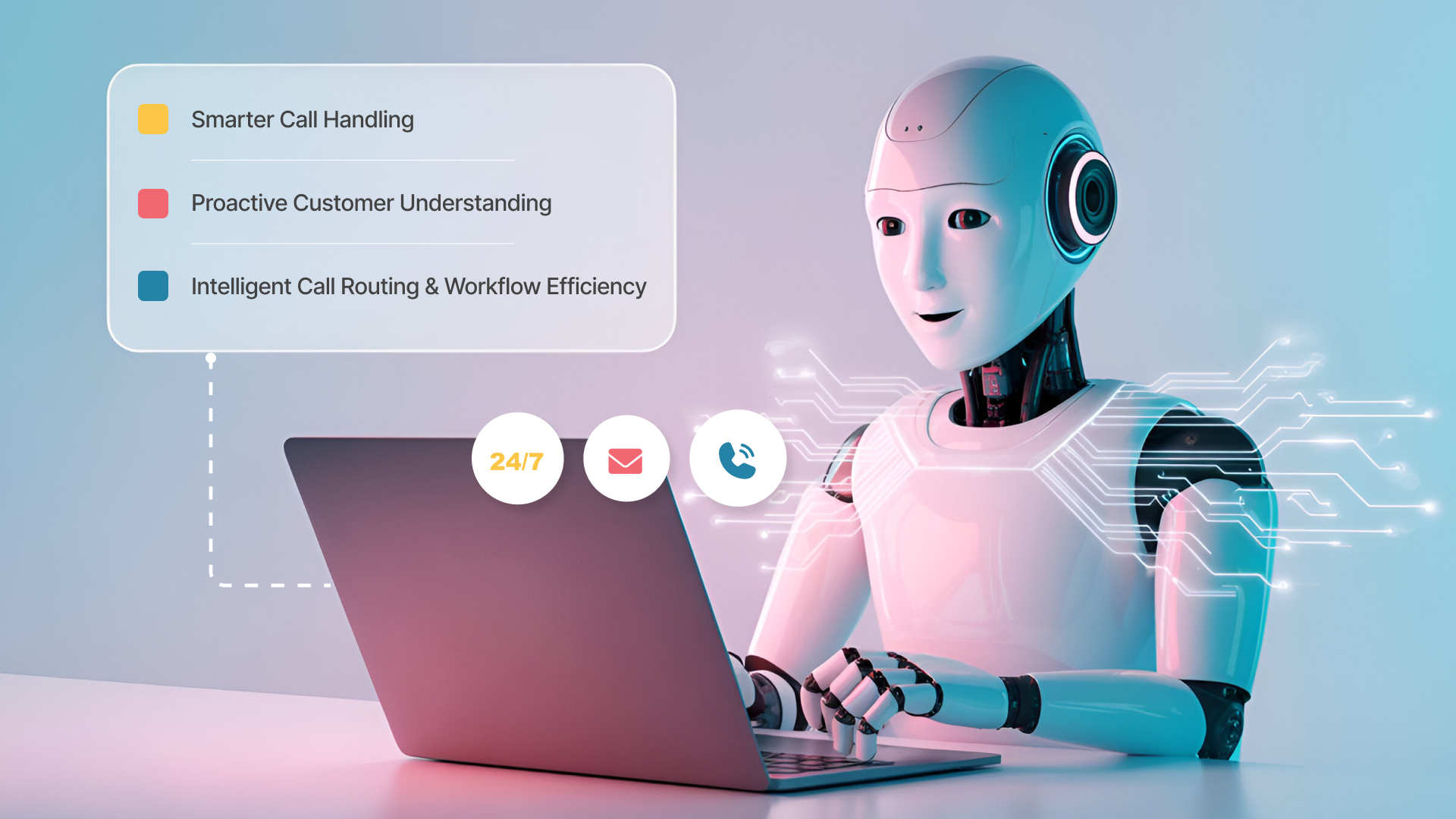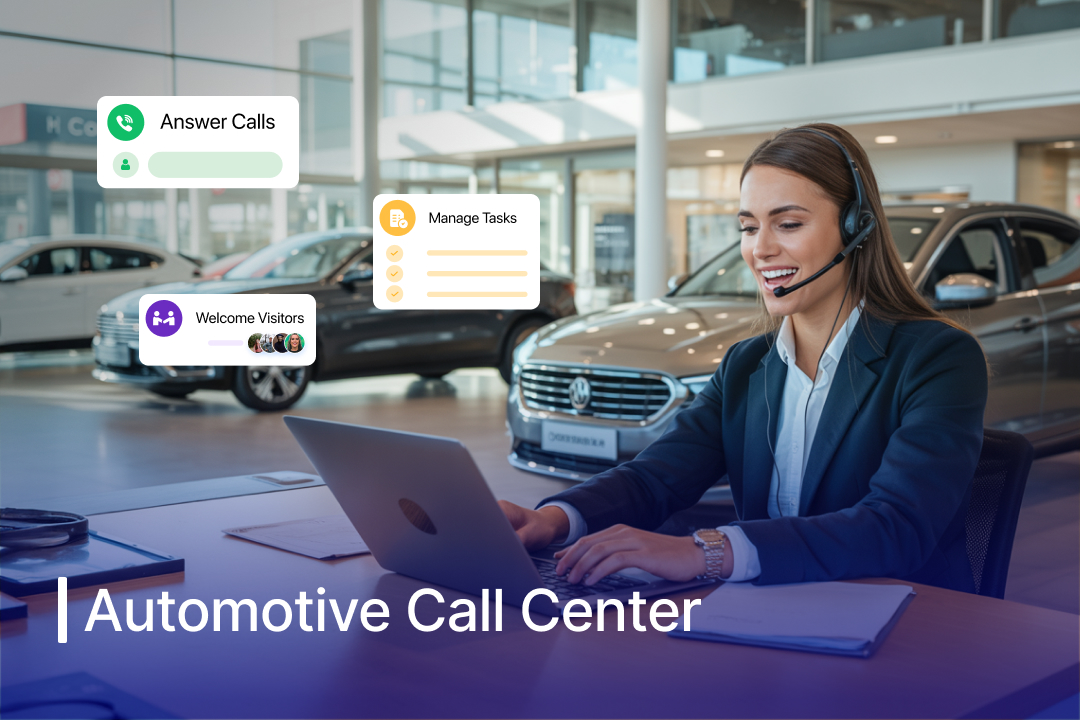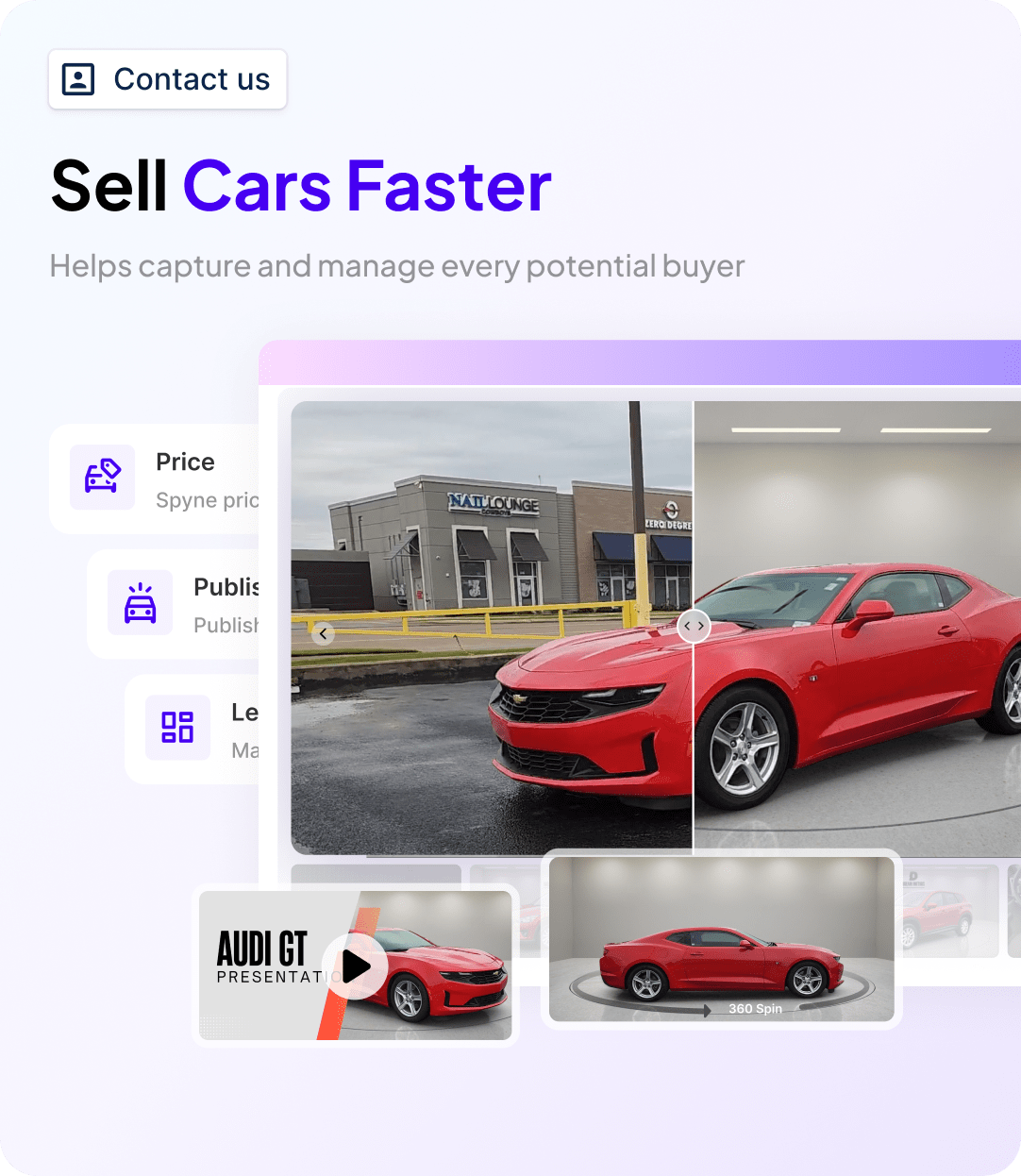The way car buyers interact with dealerships has changed more in the last five years than in the previous twenty. A few years ago, most customers would walk into a showroom before making a call.
Today, the first impression often happens over the phone, or even before that, through a quick message or website chat. When those calls aren’t answered or handled right, dealerships lose not only sales opportunities but also customers’ trust.
That’s where an automotive call center makes a difference. Its role in a dealership is not just picking up calls but guiding a potential buyer toward their next move.
What is an Automotive Call Center?
An automotive call center is a dedicated communication hub that handles customer interactions across the dealership journey, right from sales calls and service bookings to parts inquiries and post-sale follow-ups.
In simple terms, it’s the voice of a dealership that goes beyond basic query handling and shapes a customer’s first and lasting impression.
Types of Automotive Call Centers
Dealership call centers usually fall into three simple categories:
- Inbound teams handle the calls that come in. They’re the ones helping people book a test drive, check if a car’s available, or get a quick answer without waiting too long.
- Outbound call centers do the opposite. They reach out to follow up with leads, remind owners about service due dates, or share new offers.
- Hybrid call center setups that do a bit of both. They keep things running both ways, so whether a customer calls first or expects a callback, someone’s always there to respond.
Most dealerships now prefer this hybrid model. It keeps conversations natural and ensures no potential buyer slips away unnoticed. It is a practice that supports consistent customer experience management in automotive retail.
Why are Automotive Call Centers Essential Today?
As per the industry reports, about 70% of car shoppers prefer to communicate digitally first. If that outreach is missed or delayed, they simply move on to another dealer. A good call center has become essential for any automotive dealership today because it doesn’t just pick up the phone.

It connects calls, messages, chats, and emails into one consistent experience. So whether someone books a service, asks about a car’s availability, or needs finance information, they get answers fast, all without being bounced from one person to another.
In short, an automotive call center isn’t just a support channel but a revenue generator that improves both response time and customer satisfaction. This continuity is critical because modern buyers make most decisions before they ever visit a lot; a shift driven by evolving automotive call center services and digital retail trends.
How is Call Center Dynamics Changing in Automotive Retail Today?
Most buyers don’t wait for showroom hours anymore; their car search begins whenever curiosity strikes. People often check out cars whenever they get a moment- late at night, between errands, or just before work. Without a system that captures those calls or messages, a lot of good leads simply slip away.
An automotive call center makes sure every question gets noticed, no matter when it comes in. It’s not only about being responsive but being available whenever a customer decides to engage. In 2025, dealerships using structured communication systems report a significant lift in both lead conversions and overall satisfaction scores.
To put it simply, a call center today acts as the bridge between a dealer’s website and their showroom. This ensures customers don’t just share interest but actually show up.
Key Capabilities That Power a Modern Call Center
The tools behind today’s best automotive call centers have come a long way. It’s not just about polite agents and phone lines anymore, but around systems that connect data, automation, and human touch.
- CRM and ADF integration: Leads and service requests flow straight into the system, cutting out manual entry and missed follow-ups.
- 24/7 customer support: Car shoppers often browse late at night. Being reachable anytime means your dealership never really closes.
- Smart call routing: Some calls just need to land in the right place fast. Calls go straight to the right desk (sales, service, or finance) without the endless wait or looping hold music.
- Multilingual help: Not everyone is comfortable speaking the same language. Giving customers the choice to talk in the one they know best makes conversations warmer and more natural.
- Data protection: A lot of calls share personal details, so it’s important to keep that information private. Sticking to regulations like GDPR or TCPA compliance conveys to customers that their trust actually matters.
All these features help the day run more easily for both the people calling and the team picking up.
How is AI Redefining the Automotive Call Center Experience?
AI today plays a silent but crucial role in how modern dealerships work. AI for car dealerships is not there to replace teams but to help them do more with less effort. What once meant hours of manual work is now handled by AI within seconds.

Take voice assistants, for example. They can manage the everyday questions like checking if a model’s in stock or confirming a service slot, so staff can focus on actual sales conversations. Behind the scenes, tools that listen to tone or intent help spot unhappy callers early, long before they turn into complaints.
And smart routing makes sure each call finds the right person without wasting time on transfers. When all of this runs smoothly, calls get answered faster, customers feel heard, and dealerships save time and cost in the process.
AI Innovations Shaping the Future of Automotive Call Centers
Dealerships today use these AI tools to take care of the basics and keep chats more personal:
- Conversational AI: Acts as a virtual assistant that can reply to basic questions, confirm a test drive, or drop a quick update, even when the team’s offline. No waiting, and no missed leads.
- Speech Analytics: Analyzes tone, keywords, and intent to help managers train staff, improve scripts, and detect sales opportunities.
- Predictive Routing: Ensures a call doesn’t bounce around. It connects people with someone who can actually help, right from the start.
In practice, this means faster handling, reduced costs, and better service quality, results every dealership aims for.
How do Automotive Dealerships Benefit from Call Centers?
In everyday dealership operations, the value of a call center shows up in many small but meaningful ways.
- Sales teams: The sales desk uses the call center to handle new leads, confirm test drives, and follow up on messages. Every call that might’ve been missed now gets a real person on the other end.
- Service departments: Service teams count on call centers to remind customers about maintenance, confirm visits, and handle reschedules without long waits or confusion.
- Parts and accessories desks: These departments often handle heavy call volumes. Smart routing ensures customers reach the right counter instantly instead of being put on hold.
- Recall and warranty campaigns: They benefit from proactive outreach. The call center contacts affected owners, arranges appointments, and updates completion records.
When communication runs smoothly, everything else does too. Calls get answered, teams stay aligned, and customers trust the dealership a little more each time. That trust is what keeps them coming back.
Common Challenges Dealerships Face in Managing a Call Center
Even with all the new technology in place, some problems still stick around. Dealerships see call loads jump up during busy months, data entry isn’t always clean, and keeping up with compliance takes effort.
Here is what might trouble dealerships:
- Managing sudden spikes in call volume, especially during sales or service seasons.
- Keeping response quality steady when multiple people handle the phones.
- Finding the right balance between automation and real human warmth.
- Protecting customer data while staying within strict privacy rules.
For dealerships facing one or more of these challenges, call center outsourcing might be a viable option.
How to Choose the Right Call Center Software?
When selecting a call center software for the automotive industry, look for a provider who can unify technology with experience. The ideal setup should:
- Sync smoothly with your CRM or ADF system, so leads never fall through.
- Offer multilingual help, day and night.
- Follow clear compliance and privacy standards.
- Use AI for smarter reporting and not just automation.
- Actually move the needle with faster responses, better satisfaction, and stronger follow-ups.
Choosing a call center partner or an automotive BPO that aligns with the specific needs of your dealership ensures you never miss a lead and also enhances your brand perception.
ROI and Measurable Impact of Automotive Call Centers
The numbers speak for themselves. Dealerships that use structured call management report:
- Up to 50% fewer missed calls
- 30-35% higher lead conversions
- Customer satisfaction (CSAT) is up by 25%
- 35% more leads captured after hours
Beyond the metrics, the biggest win lies in consistency. Customers feel heard, sales teams stay informed, and service departments function with fewer delays. Together, all contribute to stronger customer retention and consistent revenue.
Redefining Dealership Communication with Spyne’s Conversational AI Vini
As customer expectations keep shifting, Spyne’s conversational AI, Vini, helps dealerships reply faster and with more confidence. It works like a teammate who’s always available, understands what callers need, answers right away, and passes them to the right person so no lead is overlooked.
Built into everyday call center operations, Vini keeps automation and human connection working side by side. Routine questions are handled instantly, while agents focus on meaningful conversations that build trust. This balance allows dealerships to maintain consistency, reduce response gaps, and improve satisfaction across every channel.
When dealerships pair Vini with their existing systems, everything connects better. Calls move faster, follow-ups don’t fall through, and customers get an experience that feels smooth and personal, all without adding more work for the team.
By combining Vini’s intelligence with modern call center systems, Spyne enables dealerships to deliver connected, data-driven, and customer-first experiences, all without adding operational complexity.
Conclusion
Every call, chat, or message is a small chance for dealerships to earn someone’s trust, and that trust is what brings them back. Today, an automotive call center powered by AI isn’t just another system. It’s how dealerships stay in touch with buyers who expect quick, honest, and real conversations.
For dealerships looking to future-proof their communication, now is the time to unite automation and human touch. With Spyne’s Conversational AI Vini, your teams can focus on meaningful interactions while automation takes care of the rest. This will help in addressing what truly matters, i.e., real conversations that convert.
To explore how Vini can help your dealership boost lead conversion and customer satisfaction, book a demo today.
FAQs
Most dealerships see noticeable gains, such as better follow-ups, more booked test drives, and happier customers. With tools like Vini, many record 30-40% more conversions and steady growth in customer satisfaction scores.
ADF, short for Auto-lead Data Format, makes it easy for websites and CRMs to share lead details instantly, so no inquiry gets delayed or lost between systems.
Yes, leading AI-assisted call centers like Spyne’s Vini manage calls, chats, emails, and SMS for unified engagement.
AI-assisted call centers enable automotive dealerships to manage appointment bookings, send reminders, and follow up after services through automated workflows. This helps in improving retention and workshop productivity.
Look for one that fits into your CRM easily, offers round-the-clock help, speaks your customers’ language, and has proof of real results from other dealerships.















